Climate change remains one of the most pressing challenges globally, and Nigeria is no exception. With the southern region battling relentless flooding and the northern region facing the encroachment of desertification, the country stands at the crossroads of environmental degradation. Yet, while scientific insights on climate change abound, there remains a stark disconnect between this knowledge and local community action. In Nigeria, religion is a cornerstone of daily life, shaping beliefs and behaviors in profound ways. By bridging the gap between scientific communication and religious teachings, Nigeria has an opportunity to galvanize climate action that resonates deeply with its communities.
The Role of Religious Leaders in Climate Action
Religious leaders in Nigeria hold immense sway over their communities. With a significant portion of the population relying on faith as a guiding principle, these leaders are uniquely positioned to influence behaviors and foster climate-conscious practices. Recognizing this, faith leaders have taken proactive roles in climate education. Through sermons, community programs, and direct engagement, they promote environmentally sustainable behaviors such as reducing waste, adopting climate-friendly diets, and conserving energy. These actions are pivotal in a country where individual behaviors can significantly influence climate outcomes.
By leveraging their positions of trust, religious leaders can reshape environmental worldviews within their congregations. Faith communities provide moral frameworks that align with environmental stewardship, encouraging collective responsibility for the planet. For instance, both Islamic and Christian teachings emphasize caring for creation. The Quran urges followers to avoid wastefulness, while Christian ethics prioritize the protection of God’s creation. These religious narratives offer a powerful foundation for fostering climate action that feels authentic and culturally relevant to Nigerians.
Case Studies: Climate Communication and Faith-Based Initiatives
Faith-based organizations and collaborative initiatives have already demonstrated the potential for religion to drive meaningful climate action. For example, the Global Strategic Communications Council (GSCC) partnered with Connected Development (CODE) to explore the intersection of faith and climate change in Nigeria. Their efforts aim to bridge the gap between abstract scientific concepts and the tangible realities experienced by Nigerians, fostering greater understanding and awareness.
Similarly, the “Multi-faith National Dialogue on Medium and Long-term Climate Goals,” organized by GreenFaith Nigeria, convened religious leaders from various faiths to discuss the transition from fossil fuels to renewable energy. Leaders, such as the Chief Imam of the Al-Habibiyyah Islamic Society, emphasized the need for interfaith collaboration to combat climate change. By framing environmental degradation as a moral issue and a collective responsibility, these faith leaders encouraged a unified approach to addressing climate challenges.
In another effort, faith communities across Nigeria have mobilized to address climate issues. Events such as the Caritas Nigeria Day have highlighted the role of interfaith collaborations in promoting climate-smart principles. By bringing together Christians, Muslims, and traditional African religious leaders, these initiatives demonstrate the potential for religious organizations to bridge divides and foster cohesive climate action.
Faith Communities in Action
Faith-based organizations in Nigeria have also implemented practical initiatives to combat climate change. For example, religious leaders in rural areas are promoting sustainable agricultural practices to mitigate the effects of rising temperatures and changing precipitation patterns. Programs like wet agriculture systems (paludiculture) allow communities to adapt to changing environmental conditions while maintaining livelihoods without degrading peatlands or other ecosystems.
Community-led initiatives have further highlighted the potential of localized efforts. The Nigeria Erosion and Watershed Management Project (NEWMAP) serves as an exemplary case of linking poverty alleviation with ecosystem restoration. Through community-driven development approaches, NEWMAP has enhanced resilience to climate risks for over 12 million people across 23 states. Similarly, the “Building Nigeria’s Local Response to Climate Change” (BNLRCC) project has empowered local councils to address climate vulnerabilities through awareness campaigns and adaptive strategies.
These efforts underscore the importance of integrating faith-based leadership into broader climate action frameworks. By combining religious influence with technical expertise and community participation, faith leaders can catalyze climate resilience at the grassroots level.
The Climate Challenge in Nigeria: Agriculture and Water Resources
The impacts of climate change are acutely felt in critical sectors like agriculture and water resources. Rising temperatures, unpredictable rainfall, and extreme weather events threaten Nigeria’s agricultural productivity, leading to food insecurity and economic instability. Farmers face shorter growing seasons, increased pest infestations, and deteriorating soil conditions, making traditional farming methods increasingly untenable.
Water resources are similarly under threat, with frequent flooding contaminating water supplies and prolonged droughts depleting vital springs. The consequences are dire for Nigeria’s poorest communities, who already struggle with access to clean water. Projects like NEWMAP have shown how community-based approaches can enhance water management and disaster-risk prevention, but the scale of the challenge demands even broader collaboration and sustained efforts.
Interfaith Collaborations: A Model for Climate Unity
Interfaith collaborations have emerged as a critical tool in Nigeria’s climate action efforts. Programs like Faith for Climate Action (F4CA), launched by Climate Action Africa, integrate religious teachings with environmental stewardship to inspire action against climate change. These initiatives recognize the moral and spiritual dimensions of environmental responsibility, using them as a platform to mobilize communities.
At the heart of these collaborations is the acknowledgment that climate change transcends religious boundaries. Events such as the Multi-faith National Dialogue on Medium and Long-term Climate Goals highlight the collective commitment of faith leaders to champion clean energy transitions and sustainable practices. By framing climate action as a shared moral obligation, interfaith initiatives foster unity and amplify the reach of environmental advocacy.
Future Projections: Urgency and Opportunity
As climate challenges intensify, the need for robust action becomes more urgent. The Intergovernmental Panel on Climate Change (IPCC) has outlined the dire consequences of inaction, with projections for 2030 and beyond indicating severe disruptions to agriculture, water resources, and health in Nigeria. Rising sea levels, prolonged droughts, and increasing temperatures threaten livelihoods, food security, and overall socio-economic stability.
Despite these challenges, there are opportunities for meaningful progress. Nigeria’s National Climate Change Policy for 2021–2030 outlines strategies to reduce greenhouse gas emissions and build climate resilience. However, the success of these strategies depends on the active participation of local communities and the integration of culturally resonant approaches.
Conclusion: A Unified Path Forward
The intersection of science and faith offers a powerful pathway for addressing Nigeria’s climate challenges. By leveraging the trust and influence of religious leaders, climate action can become more relatable and actionable at the community level. Faith-based organizations have already demonstrated their ability to foster environmental stewardship through initiatives that combine moral teachings with practical solutions.
To maximize this potential, governments, NGOs, and scientific institutions must actively collaborate with religious leaders to create inclusive climate communication strategies. These partnerships can bridge the gap between abstract scientific concepts and the lived realities of Nigerians, fostering a culture of climate awareness and responsibility.
As the impacts of climate change continue to unfold, the integration of science and faith will be critical in mobilizing communities and building resilience. Through unified efforts, Nigeria can navigate the challenges ahead and emerge as a model for collaborative and inclusive climate action.

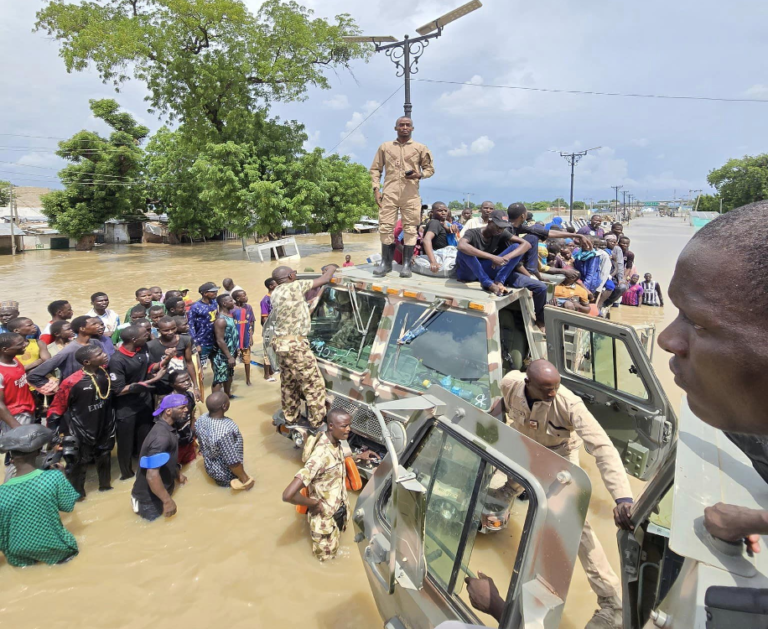

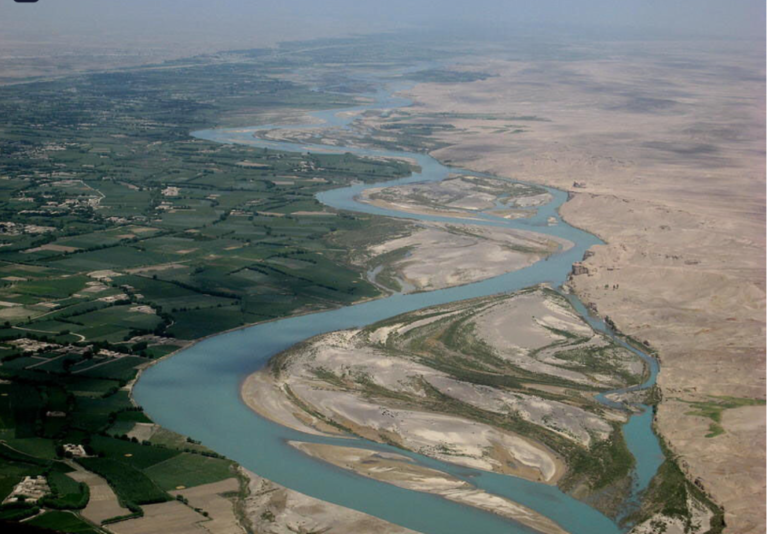
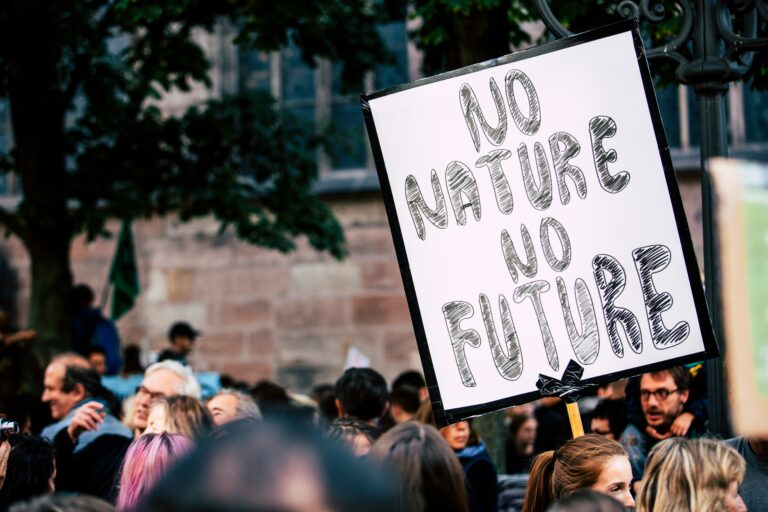
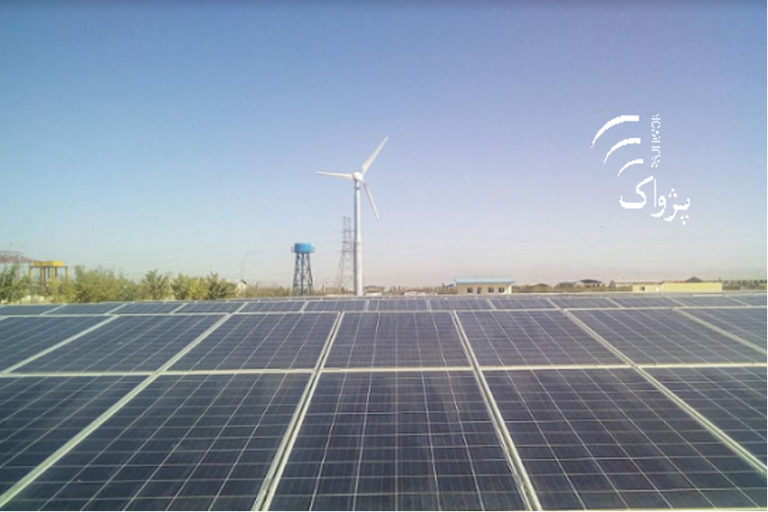
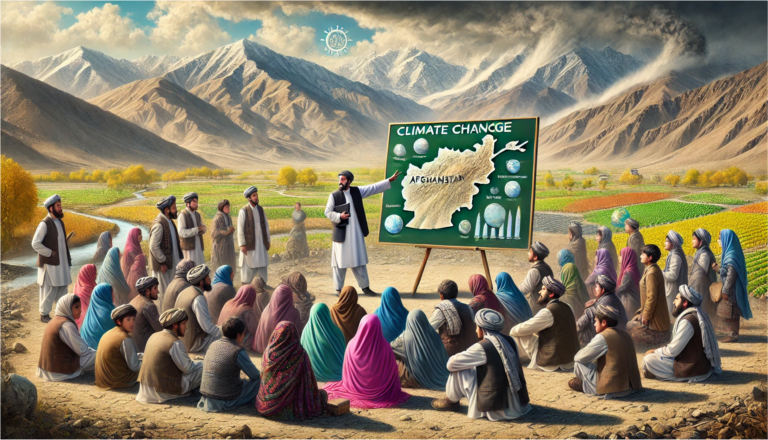
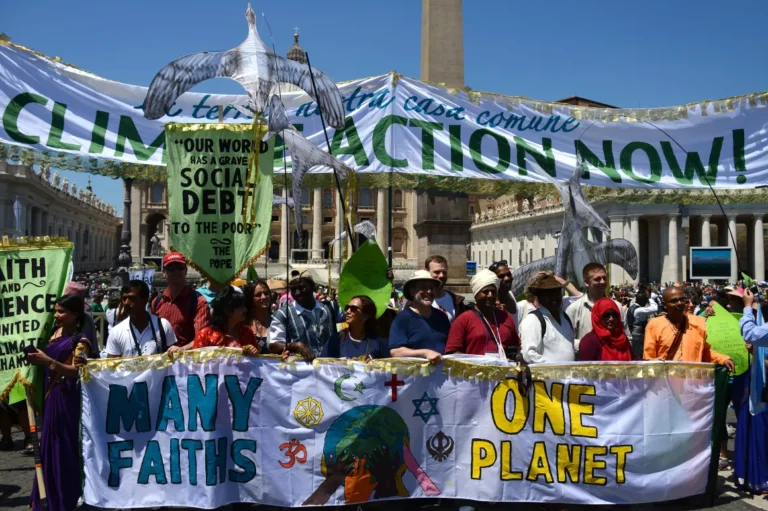
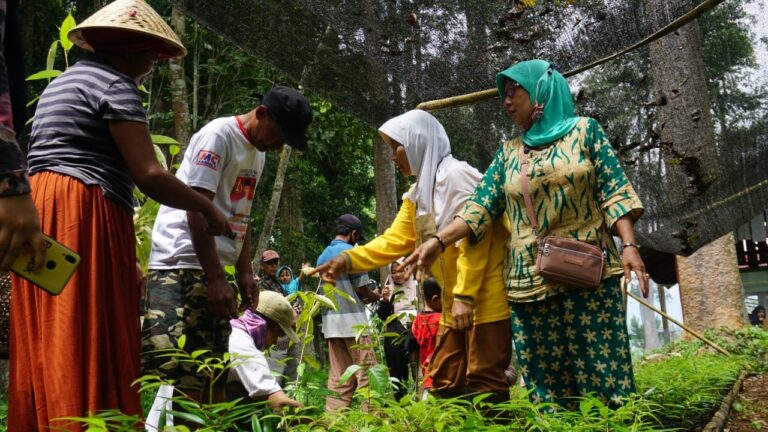

+ There are no comments
Add yours